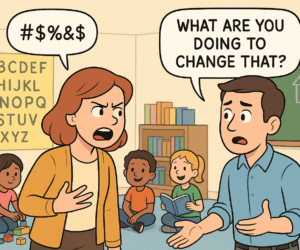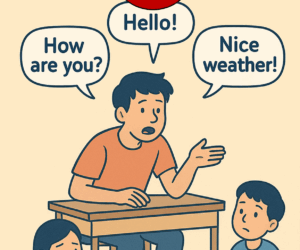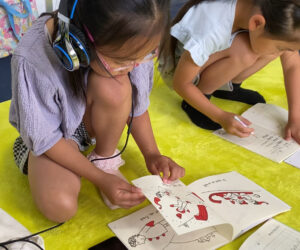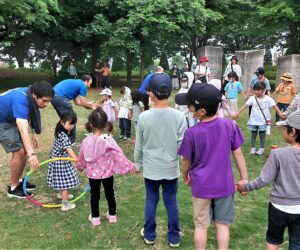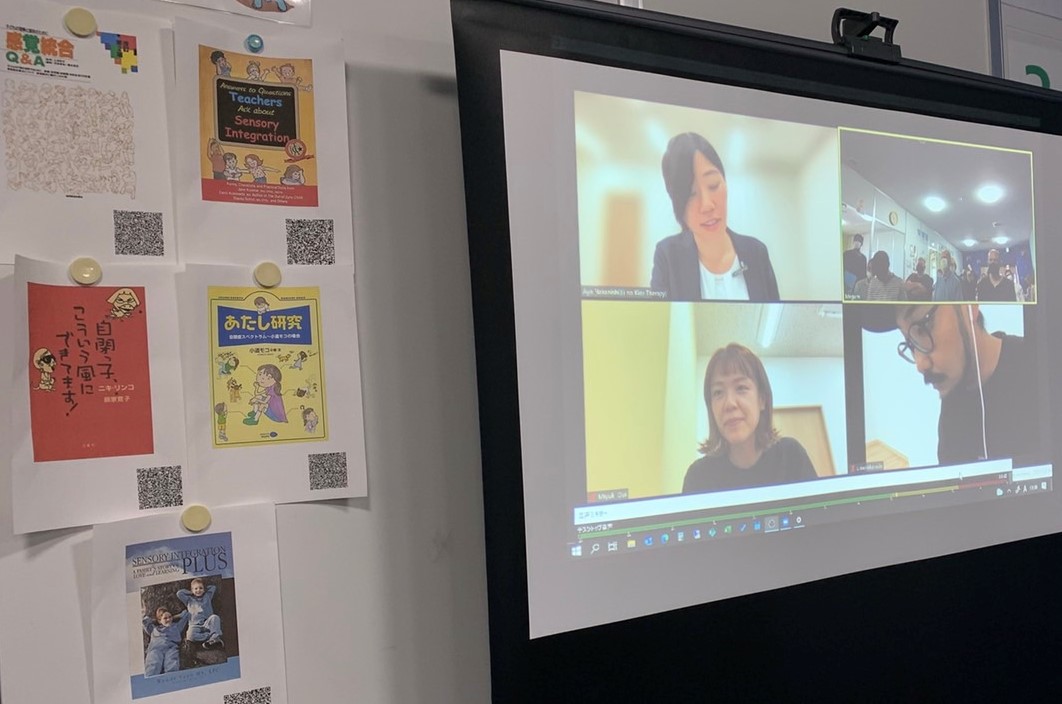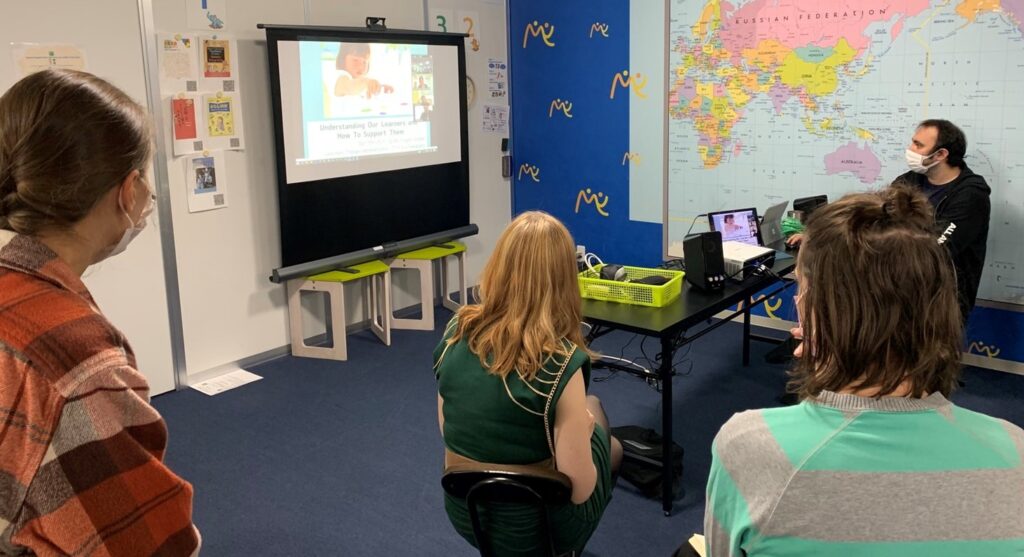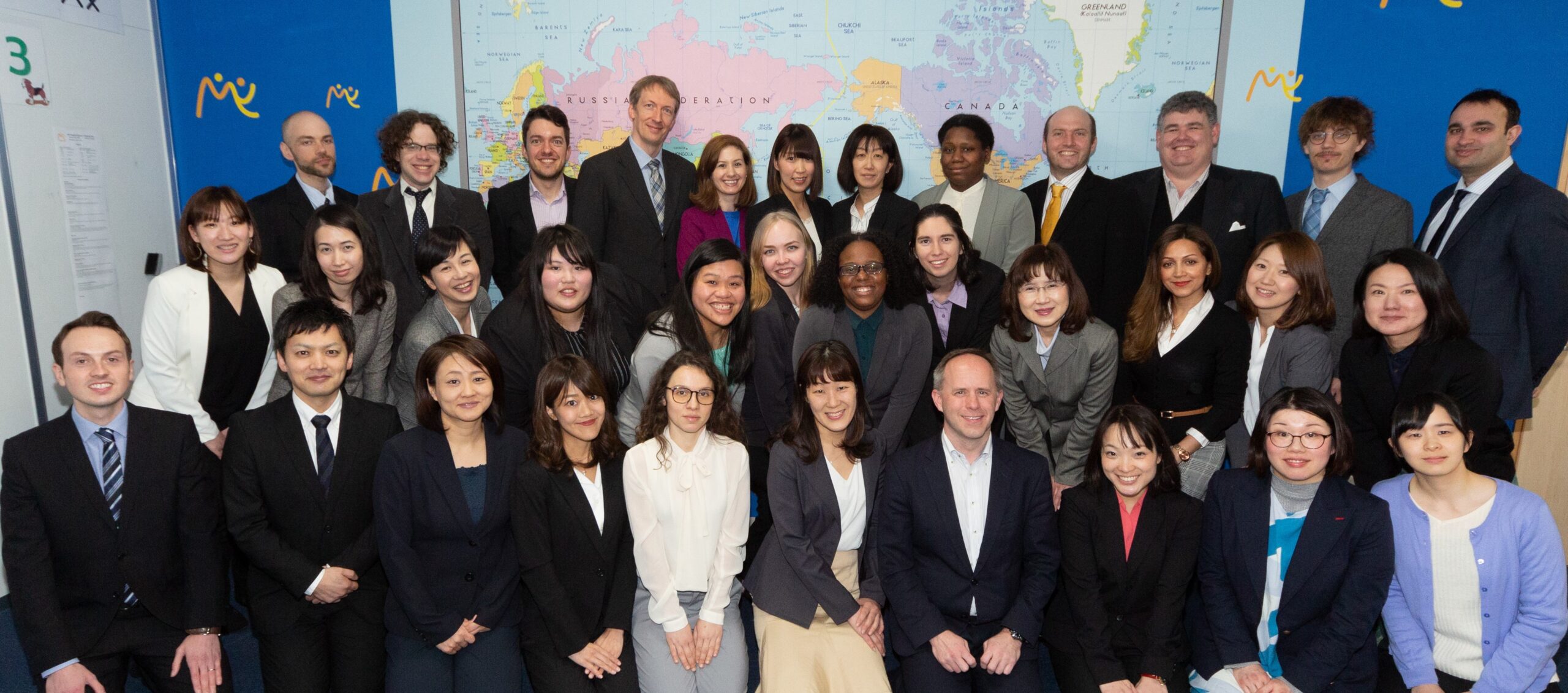Editor’s note: John and Sam both started at MY English School in April 2021. They have graciously agreed to share about their first-year experiences at MY.
“Scary…wonderful”
by
John Lin
Joining MY after being an ALT for 3 years was eye-opening. At first, it was a little bit scary, trying to learn a new teaching method. Going from an ALT who usually was taught to give students templates and run a class strictly, watching the MY teachers let students run portions of a class by themselves while they prepared the next activity showed me the way to make English learning more fun and engaging. Every teacher was also more than happy to pass on their game methods to me, and took time to give pointers on how to help children become more independent learners.
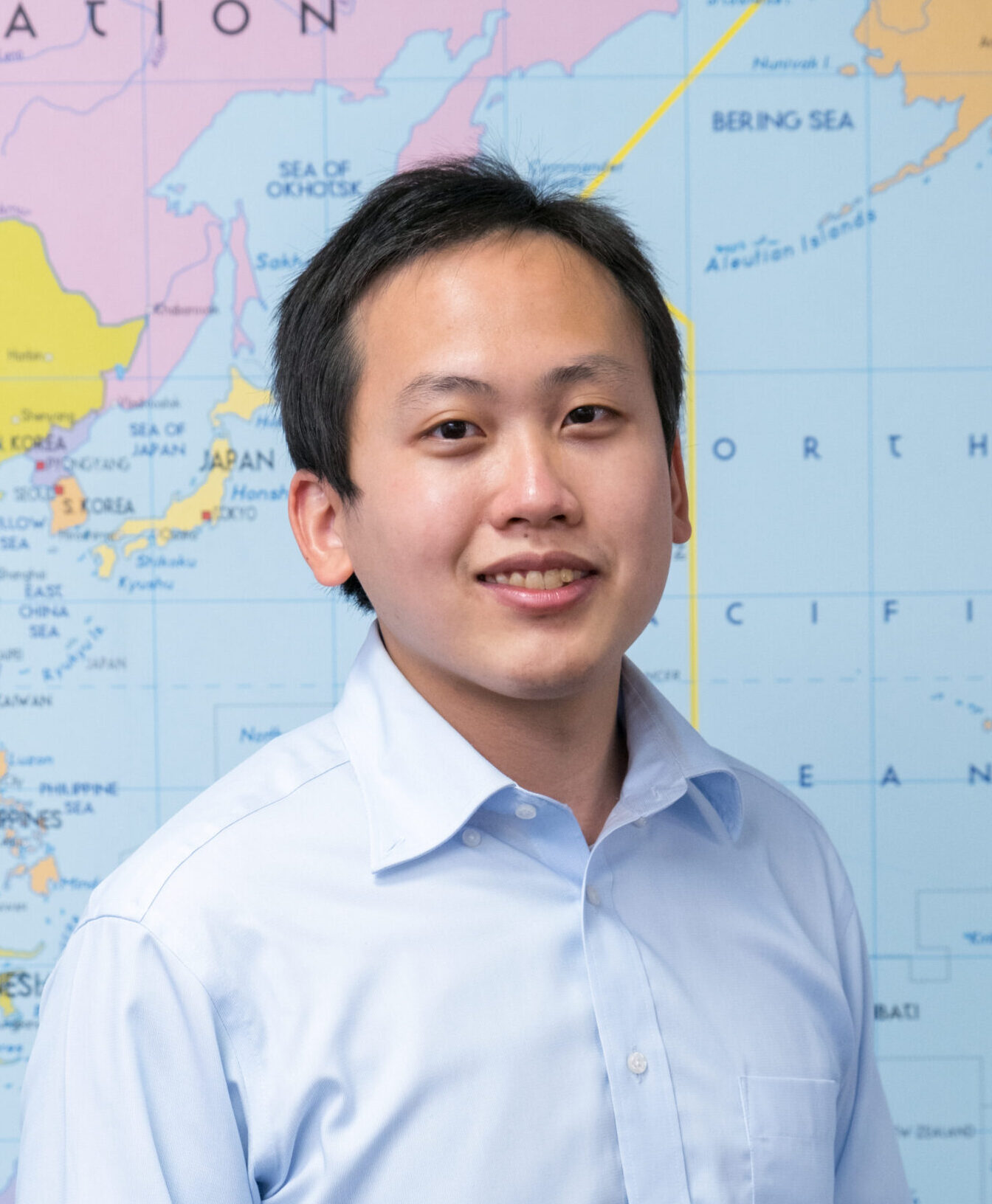
The many training days throughout the year also helped me keep track of my progress. It was also possible to not only socialize with colleagues from other schools, but to share ideas on how to improve lessons. After learning about the ball toss activities in the first training session, the second training had other teachers offering suggestions on how to make the activity more interesting for older students. Outside of the lessons and trainings, teachers will also meet up for some games or sports, bringing a sense of friendship to the staff. All of that comes together to make MY a wonderful learning and teaching experience for both the students and staff.
“I have been able to come to work happy”
by
Sam Todd
Joining MY was one of the best choices I have made in my many years in Japan. Having worked for many different places, I have always felt that the focus is misplaced in the majority of schools. MY has a very clear focus on the student and the teacher. I believe that it is easy to see how this is beneficial, not only for them, but for MY. It has been a long time since I have been able to come to work happy because I feel that I am making a dramatic impact on students’ futures and greatly enjoy working with my teammates.

As a new team member, it can sometimes feel overwhelming to be amongst a group of people that already know each other well. Having to experience some growing pains in a new company is to be expected, but the always available aid, support and welcoming nature of my coworkers, has made the transition into something interesting and enjoyable.
We, as teachers, have a very important job to do, and MY understands that there are many different ways to get to that end goal. MY allows teachers (and students) the freedom to use their skills and abilities to reach the goal and always aids in setting up the next one. It must be said that it is also fantastic to be surrounded by like-minded coworkers willing to share their experiences, so that we always have the opportunity to improve. The experience of working in an environment in which everyone works hard and is not content with mediocrity, while maintaining motivation, is truly fulfilling!


